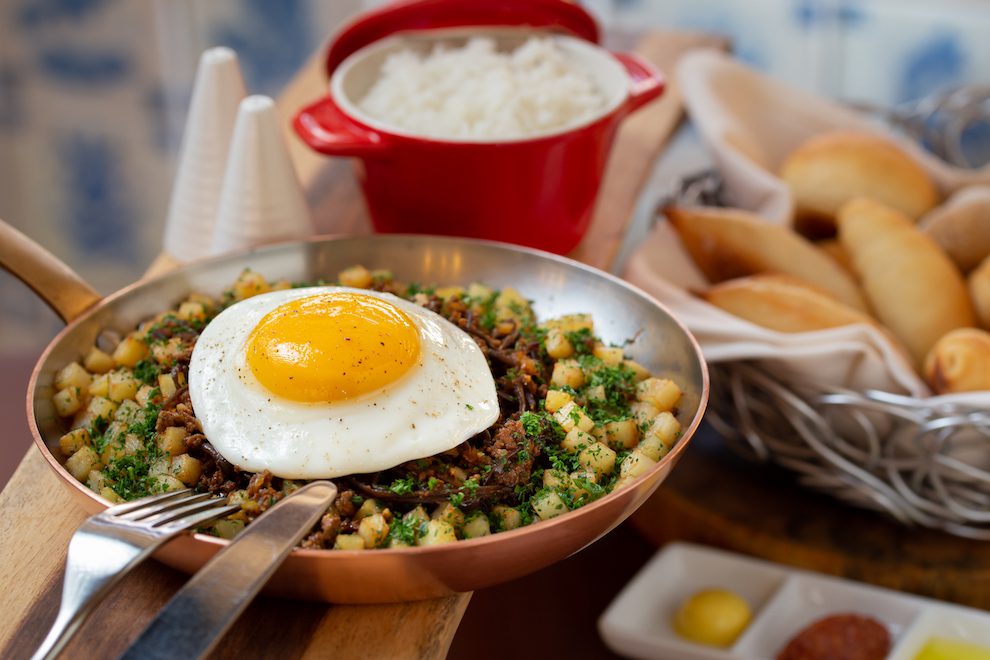IFTM has been appointed as one of Macao’s protection units for national intangible cultural heritage. The announcement was made in September by the General Office of the Ministry of Culture and Tourism of the People’s Republic of China. At that time, it released the Fifth National List of Protection Units of Representative Elements of Intangible Cultural Heritage.
The Macao Special Administrative Region (SAR) Government had proposed IFTM’s name to the national government, as the protection unit linked to Macanese gastronomy. That was connected to the addition in June of Macanese cuisine to the National List of Representative Elements of Intangible Cultural Heritage.
Two other entities from Macao were also newly appointed in September as protection units regarding national intangible cultural heritage. They were: the Dóci Papiaçám di Macau drama group, for the protection of theatre in Patuá, a creole language derived from archaic Portuguese; and Associação de Cheok Chai Un Fok Tak Chi Tou Tei Mio Chek Lei Wui de Macau, for protection of beliefs and customs related to Tou Tei (God of Earth).
Following IFTM’s appointment in its protection unit role, the Institute’s management stated that the higher education institution would continue to advance its work regarding cultural heritage preservation, in line with the Intangible Cultural Heritage Law of the People’s Republic of China and national policies.
Macanese cuisine is also part of Macao’s own official intangible cultural heritage list. The word “Macanese” refers to Macao’s Eurasian population: the city’s people with ancestral ties to Portugal or the country’s former colonial outposts, such as Goa and Malacca, and the Mainland.
The Macanese have a distinct social and cultural identity, besides their development of Patuá creole. Over the centuries, Macanese cuisine blended Southern Chinese and Portuguese flavours with exotic new ingredients brought by Portuguese sailors. The result is a mix of influences from Europe, Latin America, Africa, the Indian subcontinent, Southeast Asia, and the Mainland.
The Macao SAR Government has repeatedly stressed the importance of Macanese cuisine in the city’s unique gastronomic culture, and in the development of a sustainable tourism industry, as Macao works to transform itself into a World Centre of Tourism and Leisure.
IFTM is deeply involved in efforts to help increase awareness of Macanese cuisine among consumers and industry. The Institute is meeting that objective by offering Macanese cuisine training courses, hosting cooking demonstrations and competitions, and serving an array of Macanese fare at the IFTM Educational Restaurant.
The Institute was one of the parties involved in the creation of a comprehensive database of Macanese cuisine, available at www.gastronomy.gov.mo. It was officially launched by the Macao Government Tourism Office in November 2020, in collaboration with IFTM, the Macao SAR Government Cultural Affairs Bureau, and the International Institute of Macau.
In addition, the Institute has created a themed corner on Macanese gastronomy, located in the IFTM Library. There, users can find items included in the database of Macanese cuisine, that were collected in a worldwide search. That includes books and publications about Macanese gastronomy, manuscripts and hundreds of recipes. The physical display aims to help educate, preserve and promote the city’s distinctive food culture.
Back in 2010, IFTM and Confraria da Gastronomia Macaense – an organisation that promotes Macanese cuisine – signed a cooperation agreement to join efforts to take the cuisine to a wider audience.
IFTM’s bachelor’s degree programmes also make a point of including Macanese cuisine. Students learn about the origins, preparation and characteristics of the food and the culture that lies behind it. Students enrolled on the Culinary Arts Management Bachelor’s Degree Programme are offered additional exposure to Macanese cuisine.
In November 2017, Macao became a member of the UNESCO Creative Cities Network in the field of gastronomy, with Macanese food – often dubbed as the “world’s first fusion gastronomy” – playing a role in UNESCO’s decision.









